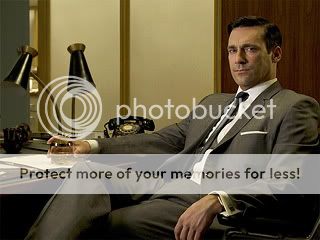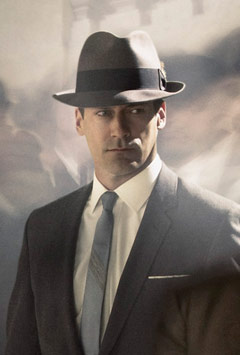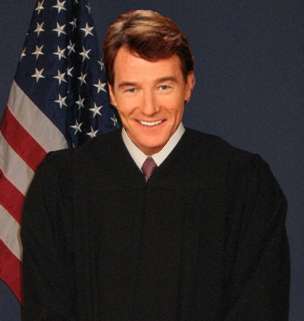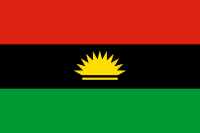The Gregg Institute on Foreign Relations
Country Profile Index
North Korea
Russia (
wikibars |
Description)
France
Germany
Japan
China
Israel
Qumar
Australia
Vatican City
Equatorial Kundu
>>>>>
The Gregg Institute on Foreign Relations
Country Profile
<
The American Colony of Kundu (1855 - 1864) -
The Republic of Equatorial Kundu (1864 - ) >
Capital: Pierceville
Official Languages: English
Government: Federal Republic
Population: 4,406,757 (2010 census)
Currency: Kundunese Dollar
President: Uzochi Nzele
Vice President: Adeola Muzenda
Speaker of the House: Kwaku Tarlot
Chief Justice: Benjamin Uriji
Flag (1864-2001)
Flag (2001-)
House of Representatives (64)
Arkutu Freedom: 11
Arkutu Patriotic: 48
Induye Alliance: 3
Independents: 2
Senate (30)
Arkutu Freedom: 6
Arkutu Patriotic: 20
Induye Alliance: 2
Independents: 2
Demographics:
... since 2000 the Country's population has decreased by almost 2.25 million. Fear of the AFRC militia and fear of being sent to a political prison, caused many to flee. Many Induye fled to the Ivory Coast, Ghana, or the United States, settling around DC.
Political Parties:
...however Nimbala's party and the chief opposition party were made illegal by Nzele in his first month of office. Since 2001 there has really only been one party, but technically two. The Arkutu Patriotic party, of which Uzochi Nzele is the leader. He rules the party with an iron fist. The other party is the Arkutu Freedom Party, headed up by Adeola Muzenda, Nzele's Vice President. The chief difference between the two parties is how to deal with the Induye Population, Nzele seems to be fine with them fleeing across the borders, but Muzenda believes that the execution camps should be restarted to, in her words "finish the job". There is one other political party in Equatorial Kundu besides the Arkutu Freedom and Arkutu Patriotic parties, and that is the Induye Alliance, made up of only 3 members
History:
...President Franklin Pierce of the United States, after the meeting put the full weight of his support behind the American Colonization Society, to create a new colony just adjacent to the now independent Liberia as a "home" for freed African slaves.
<>
In 1862 Kundu violently rebelled against the United States and the United States was forced to withdraw all aide and "protectorate status" from the nation, although President Lincoln had reduced aid to Kundu, to aid the Union's war effort. Kundu had formed a Constitution and Governor, copying its neighbor Liberia by 1865, and began opening trade to the rest of the world, notably the United States and Europe. One ambassador to Kundu, Benjamin Pierce, became a hero to Equatorial Kundu as he worked tirelessly for aid from Washington DC, and helped build the infrastructure of the newly formed republic. In honor of his achievement, in 1900 President Morgan of Equatorial Kundu, renamed the capital to Pierceville in honor of Benjamin Pierce. Later...
<>
... although unconfirmed, many believe that Nzele used his corporate assets (notably mining exports) to funnel money to the AFRC. Adeola Muzenda rose to prominence as the head of the AFRC, and allegedly it was her that executed President Nimbala as he left his plane upon returning from the United States, in the parking lot of Benjamin Pierce International Airport. Nzele who was head of the Kundunese Senate at the time and was 5th in line for the presidency, became the 21st President of the Republic of Equatorial Kundu taking the oath before a large crowd of AFRC supporters.
The next two years of Nzele's presidency saw the country descend from its position as an isle of stability in Africa to one of the most autocratic regimes in the world. Nzele let Muzenda's AFRC militias run free throughout the nation, unimpeded by either police or the military. In 2002, the violence against ethnic Induyes increased tenfold. Frequently roving militia groups selected Induye homes or compounds and dragged families from their homes and killed them. It is estimated that in these 2 years over 120,000 Induye Kundunese were killed and 1.5 million fled the country, close to a quarter of the population according the 2000 census. The wealth of the Induyes that were killed flowed straight into the government's funds, or Nzele's pockets.
On February 13, 2003, the 101st Airborne paradropped on Benjamin Pierce International Airport, and took the airport from the control of the AFRC, and Kundunese military forces. President Nzele, and most of his government vanished on February 14, 2003. Within 72 hours the Kundunese army surrendered, but the AFRC, which had never been part of the military refused to surrender, and resorted to guerrila tactics, fleeing into the forests and remote valleys in the north part of the country. For the next year the US military, and eventually UN coalition troops, were engaged in hunting these militia groups throughout the country. Most of Nzele's officials were found, save two: Nzele and Muzenda could not be found. Rumor has it they fled to Liberia, going back and forth in the Soubre valley, a remote valley shared by Equatorial Kundu, Liberia, and Côte d'Ivoire.
The Kundu Occupation was more difficult than military planners had initially thought. The country was now even more Arkutu dominated then before, and the populace saw the UN forces not as liberators as President Bartlet had hoped but as invaders. Even if 25% of Arkutus supported the Arkutu militias, they almost universally hated the UN occupation. The situation was one that could not persist for very long, and in 2004 the occupation would end following an election.
Chief Justice of the Kundu Supreme Court, Benjamin Uriji penned the 3-2 decision of the court, ordering a Special Presidential Election which would be monitored by the UN Election Commission, hoping to stop the popular revolts against the UN occupation. Former President Newman was part of the UN commission monitoring the votes, and certified the victor as Murtala Ramat Mubutu. Murtala Ramat would become the 23rd President of Equatorial Kundu, and on the day of his Inauguration on April 1, 2004 the American Troops withdrew, and six months later the UN forces finished a phased withdrawl.
On June 20, 2004, the Pierceville Herald broke a story alleging President Ramat of accepting bribes and funneling arms to Liberia. Any investigation by the United States, or other Western journalists yielded nothing behind the charges. Nevertheless the Kundu Congress found him guilty of these crimes, and had him and his vice president from office. Following the American example of special elections, the Chief Justice of Equatorial Kundu Benjamin Uriji ordered a special presidential election for March 11, 2005, less than one year into Mubutu's five year term. What was most disturbing was that Nzele and Muzenda emerged from hiding, now married and representing a united Arkutu Patriotic and Arkutu Freedom Ticket.
Despite Kundu's recent history in recent affairs, the Special Election of 2005. When it broke the news it was only the third story on Mark Bunn's News Show, and was only a few inches in Timothy Thomason's editorial column. Even Professor Rometheus here at the Gregg Institute only made a memo of it a week after the fact. Why the story was ignored is not that hard to explain, the Kundu Special Election usually a front page story, got bumped to page 27, the front page story was about the Camp David Conference and the historic peace accord. While Washington and NATO were scrambling to get international support for the Camp David Accord, Nzele and Muzenda were elected President and Vice President. Their term of office right now is still quite dictatorial, there is virtually no chance of an opposition, but their treatment of Induyes has not changed and become party policy. Equatorial Kundu is for Arkutus, but Nzele and Muzenda differ on how to achieve that. Nzele and the Arkutu Patriots allow all Induyes to leave the country, whereas Muzenda and the Arkutu Freedom wants the AFRC militia to run free persecuting Induyes.
The 2010 election was monitored by the UN but Nzele was legitimately re-elected.
President Nzele is due to address the United Nations in July of this year.
Electoral Outlook: 2015
Following the 2005 election, Nzele/Muzenda were elected overwhelmingly 80 EVs out of the 94 members. Technically Muzenda is the leader of the Arkutu Freedom Party, and Nzele head of the Arkutu Patriotic Party. Their alliance (in fact marriage) has effectively made Kundu a one party democracy. However there are signs of cracks in the alliance, Muzenda wants a continuation of the first post-coup presidency, with concentration camps and militias freely running around the country. Nzele on the other hand tells his Secretary of Immigration to approve all visas out of the country to any Induye. It costs Equatorial Kundu little since UNICEF pays for the airfare for any Induye wishing to flee. It would be accurate to say that the only reason Nzele is in no danger of facing another intervention is because if he was removed from office, Muzenda would be President. Of course the whole scheme could have been planned like that by Nzele and Muzenda from the start.
>>>>>
[1] Nzele disappeared on February 14, 2003 along with Adeola Muzenda, however he was still technically President until his term of office was up in 2004
[2] The Kundunese had no constitutional mechanism for replacing a vice president, as a result Nwabudike Edwin Nimbala's Vice President was technically Nzele's even though Benjamin Nimbala was alive at no point during Nzele's presidency
>>>>>
Casting
President Uzochi Nzele is played by Michael Dorn



















